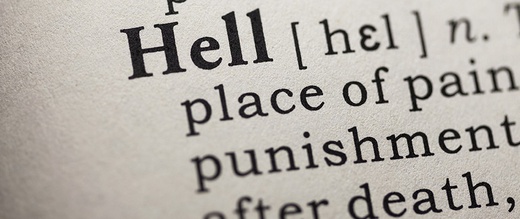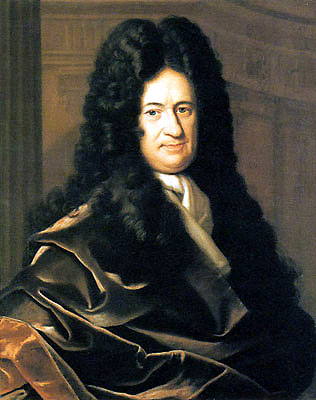The views expressed in our content reflect individual perspectives and do not represent the authoritative views of the Baha'i Faith.
Number three on the all-time Hades hit parade: The road to hell really is paved with good intentions.
The old saying, of course, refers to our good intentions as insufficient, and implies that beliefs and ideals aren’t enough to live a spiritual life. In other words, mere unfulfilled intent can never replace action.
This comes right back to the idea of salvation–which also illuminates two of philosophy’s largest and most critical central concerns, called “the problem of Hell” and “the problem of Evil.” Let me explain.
In philosophy, the “problem of Hell” questions the ethical foundations of religions that portray Hell as a place where immortal souls suffer cruel and unusual punishment for eternity. This cruelty and suffering, the ethical philosophers say, seriously undermines the concept of a loving, just and benevolent God.
This, you’ll remember from the first essay in our series, severely troubled my seven-year-old soul. How could a morally upright and omnipotent Creator come up with such torture? Hell sounded so evil, so diabolical and so relentlessly wrong to me, even as a young boy, that it called into question everything I believed. It even made me question the existence of God.
So I rebelled against the belief. I knew, deep in my little boy’s heart, that basic fairness meant the people our minister called sinners or unbelievers or “the wicked” just couldn’t undergo the damnation and eternal fire he promised them. For me, the two ideas, hell and God, could not co-exist. I rejected the whole notion of hell. And that decision made me seriously suspect the salvation theory, too.
The salvation theory holds that mere belief in Jesus or any other Prophet of God can save your soul from eternal damnation in hell. That one just never seemed right to me. How could simply saying that you believe in someone or something make you any different or better or more “saved” than anyone else? Didn’t God and his Messengers want to see good deeds, good actions and good outcomes, rather than just good intentions? And wasn’t the road to hell, as my Grandpa was fond of saying, paved with good intentions?
All those questions eventually led me to another, closely-related philosophical conundrum called the “problem of evil.” In reality, the problem of Hell and the problem of evil both fit into the category philosophers and theologians call Theodicy. That term, coined by the great German philosopher Liebniz in 1710, comes from the Greek words for God and justice. Here’s theodicy’s central question: How can an all-powerful deity allow evil and Hell to exist? Hardly anyone gets through life without confronting and grappling with this important question.
After looking for a long time, I finally found my answer.
The Baha’i teachings have a unique and particularly nuanced view of this troublesome issue which satisfied, and still satisfies, my soul. Instead of believing in a place called Hell run by a personification of evil named Satan (or a woman named Hel), Baha’is see the symbolism of the terms in the same way physicists see light and darkness:
Briefly, the intellectual realities, such as all the qualities and admirable perfections of man, are purely good, and exist. Evil is simply their nonexistence. So ignorance is the want of knowledge; error is the want of guidance; forgetfulness is the want of memory; stupidity is the want of good sense. All these things have no real existence.
In the same way, the sensible realities are absolutely good, and evil is due to their nonexistence — that is to say, blindness is the want of sight, deafness is the want of hearing, poverty is the want of wealth, illness is the want of health, death is the want of life, and weakness is the want of strength.
…Then it is proved that there is no evil in existence; all that God created He created good. This evil is nothingness; so death is the absence of life. When man no longer receives life, he dies. Darkness is the absence of light: when there is no light, there is darkness. Light is an existing thing, but darkness is nonexistent. Wealth is an existing thing, but poverty is nonexisting. Then it is evident that all evils return to nonexistence. Good exists; evil is nonexistent. – Abdu’l-Baha, Some Answered Questions, p. 263.
You cannot darken a lighted room with some non-existent force of darkness; but you can certainly illumine a dark room with even a single source of light.
Baha’u’llah compared that non-existent darkness with a lack of knowledge, and said that God sends humanity the Founders and Messengers of the great Faiths as educators and light-givers:
God’s purpose in sending His Prophets unto men is twofold. The first is to liberate the children of men from the darkness of ignorance, and guide them to the light of true understanding. The second is to ensure the peace and tranquillity of mankind, and provide all the means by which they can be established. – Gleanings from the Writings of Baha’u’llah, pp. 79-80.


















Comments
Sign in or create an account
Continue with Facebookor